Ditapis dengan
50 Chinese Wisdoms
50 kebijaksanaan China Klasik yang sangat populer dikemas dan disajikan dengan apik dalam buku ini.Bila Anda membacanya sebagai buku motivasi, kisah-kisahnya akan memberi Anda inspirasi dalam menggeluti kehidupan sehari-hari. Bila Anda membacanya sebagai buku cerita, Anda akan menemukan kisah-kisah singkat yang begitu menarik, cerdik, padat akan pesan moral, dan pasti akan memperkaya batin Anda…
- Edisi
- -
- ISBN/ISSN
- 9792224998
- Deskripsi Fisik
- 160 hlm, 14 x 21 cm
- Judul Seri
- -
- No. Panggil
- 181.11 LEM l

The Best of Chinese Strategies: Memenangkan Kompetisi Bisnis dengan 36 Strate…
Dengan filosofi menghindari kompetisi langsung sebagai cara yang paling cerdik dalam berkompetisi, The Best of Chinese Strategies menawarkan beraegam strategi, seperti 'Indiriect Action, Continuos change startegy, Deception Strategy' dan lain-lain, sehingga anda mempunyai ruang dan gerak untuk memilih salah satu ataupun gabungan strategi yang terbaik, tepat guna, dapat diandalkan, fleksibel seb…
- Edisi
- Cet. 3
- ISBN/ISSN
- 9789792229301
- Deskripsi Fisik
- 202 hlm, 14 x 20,5 cm
- Judul Seri
- -
- No. Panggil
- 174.4 LEM t
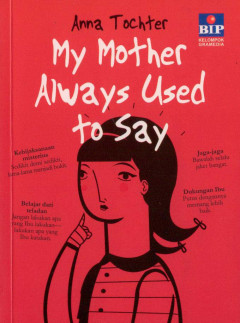
My Mother Always Used to Say
Di dalam buku inspirasional dan penuh humor ini, Anna Tochter menghadirkan koleksi lebih dari 300 kalimat yang biasa dikatakan oleh para ibu. Buku ini akan mengingatkan kita bahwa tak seorang pun dapat mengasihi kita melebihi ibu kita,
- Edisi
- -
- ISBN/ISSN
- 9797891266
- Deskripsi Fisik
- 142 hlm, 12 x 16 cm, ilus.
- Judul Seri
- -
- No. Panggil
- 155.4 TOC m
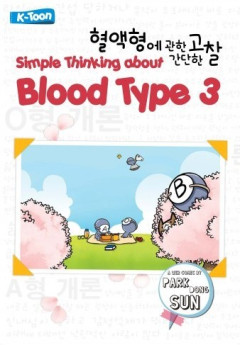
Simple Thinking About Blood Type 3
Pernah mengalami kesulitan memesan makanan ketika golongan darah A, golongan darah B, golongan darah O, dan golongan darah AB berada dalam satu tempat? Bingung karena teman sekamar nggak pernah bersih-bersih? Ingin terlihat baik di depan bos killer? Penasaran mengapa terjadi konflik gara-gara si cewek tidak bisa memilih antara ayam atau piza? Jika tidak saling mengenal, memesan ayam…
- Edisi
- -
- ISBN/ISSN
- 9786027742512
- Deskripsi Fisik
- 286 halaman, 20 x 14 cm, ilus.
- Judul Seri
- -
- No. Panggil
- 155.2 PAR s
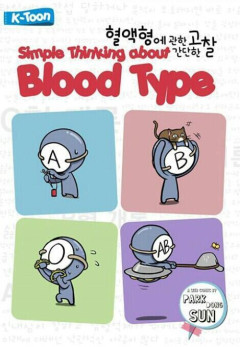
Simple Thinking About Blood Type
Tahu nggak sih kalau orang bergolongan darah A itu orang-orang yang halus, tapi kaku dan taat pada peraturan? Atau tahukah kamu kalau golongan darah B itu orang-orang yang kreatif dan bebas? Apa jadinya kalau mereka disatukan? Jangan-jangan, bisa terjadi pertengkaran! Ternyata, selain perbedaan jenis kelamin, tempat tinggal, agama, dan kondisi ekonomi, golongan darah juga bisa menentukan pe…
- Edisi
- -
- ISBN/ISSN
- 9786027742253
- Deskripsi Fisik
- 262 halaman, 20 cm
- Judul Seri
- -
- No. Panggil
- 155.2 PAR s
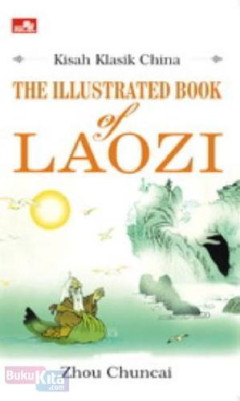
Kisah Klasik China: The Illustrated Book of Laozi
Melalui komik ini, terbukalah jalan menuju kisah kebudayaan China klasik. Inilah buku yang menceritakan kisah Laozi -orang bijak pada zaman kuno- dan Daodejing-nya dalam penjelasan yang mudah dipahami. Dengan format komik dan ilustrasi yang menarik, Anda akan lebih mudah memahami arti dan pengaruh Dao dan De tanpa kehilangan esensi pokok ajarannya.
- Edisi
- -
- ISBN/ISSN
- 9789792795806
- Deskripsi Fisik
- 226 halaman, 15x23 cm
- Judul Seri
- -
- No. Panggil
- 181.11 ZHO k
Kick Andy: Kumpulan Kisah Inspiratif 2
Buku ini berisi kisah-kisah yang pernah di tayangkan dalam acara Kick Andy di Metro TV yang dapat menjadi inspirasi dalam kehidupan. Sejak awal kehadirannya, Kick Andy langsung mencuri perhatian penonton televisi. Mengolah cerita yang biasa hadir di sekeliling kita menjadi sebuah tayangan yang inspiratif dan membangkitkan semangat baru. Kick Andy tidak hanya mengajak untuk menonton dengan hat…
- Edisi
- -
- ISBN/ISSN
- 9786028811163
- Deskripsi Fisik
- viii+280 hlm, 20,5 cm
- Judul Seri
- -
- No. Panggil
- 128 ADI k
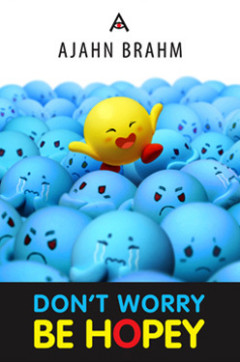
Don't Worry Be Hopey
Kegalauan adalah melihat masa depan dengan mempertimbangkan semua hal buruk yang bisa terjadi. Kecemasan tak semestinya seperti itu adalah penyakit kognitif dalam skala mewabah di dunia modern kita. Penangkalnya adalah melihat masa depan dengan mempertimbangkan segala hal baik yang bisa terjadi. Ini bahkan bisa meningkatkan kemungkinan keberhasilan. Ini menambah harapan alih-alih negativitas…
- Edisi
- -
- ISBN/ISSN
- 9786028194754
- Deskripsi Fisik
- 20,5 x 14 cm, 205 halaman, ilus.
- Judul Seri
- -
- No. Panggil
- 181.043 BRA w
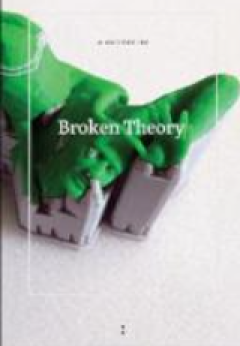
E-book Broken Theory
Broken Theory is a jettisoned collection of fragmentary writing, collected and collaged by new media artist, writer, musician, and theorist Alan Sondheim. Folding theoretical musings, text experiments, and personal confessions into a single textual flow, it examines the somatic foundations of philosophical theory and theorizing, discussing their relationships to the writer and body, and to the …
- Edisi
- -
- ISBN/ISSN
- 9781685710484
- Deskripsi Fisik
- 227 hlm
- Judul Seri
- -
- No. Panggil
- 142.7 ALA b
E-book Empty-Base Explanation
Anyone who has spent some time around children or philosophers will be famil-iar with the following situation: The child or philosopher will ask a why-questionand demand an explanation for the fact or phenomenon at hand. If lucky, onewill be able to produce an answer, albeit just to be confronted with a furtherwhy-question concerning that answer. Then, at some point of this game of why-question…
- Edisi
- -
- ISBN/ISSN
- 9783111069500
- Deskripsi Fisik
- 207 hlm
- Judul Seri
- -
- No. Panggil
- 110 KAP e
E-book Time Management
Your ability to manage your time, as much as any other practice in your career as an executive, will determine your success or failure. Time is the one indispensable and irreplaceable resource of accomplishment. It is your most precious asset. It cannot be saved, nor can it be recovered once lost. Everything you have to do requires time, and the better you use your time, the more you will accom…
- Edisi
- -
- ISBN/ISSN
- 9780814433430
- Deskripsi Fisik
- 138 hlm
- Judul Seri
- -
- No. Panggil
- 155.25 TRA t
E-book Modern French Philosophy
We have seen how, as a consequence of the Revolution and of the cold, destructive, criticism of the eighteenth century, there was a demand for constructive thought. This was a desire common not only to the Traditionalists but to De Biran and Cousin. They aimed at intellectual reconstruction. While, however, there were some who combated the principles of the Revolution, as did the Traditionalist…
- Edisi
- -
- ISBN/ISSN
- 9781419134753
- Deskripsi Fisik
- 136 hlm
- Judul Seri
- -
- No. Panggil
- 194 GUN m
E-book Stolen Legacy : Greek Philosophy is Stolen Egyptian Philosophy
The knowledge that the African continent gave civilization the Arts and Sciences, Religion and Philosophy is des- tined to produce a change in the mentality both of the White and Black people. 2. There are three persons in the drama of Greek philosophy: (a) Alexander the Great; (b) Aristotle's School and; (c) The Ancient Roman Government who are responsible for a false tradition about Africa an…
- Edisi
- -
- ISBN/ISSN
- 9781635610574
- Deskripsi Fisik
- 135 hlm
- Judul Seri
- -
- No. Panggil
- 182 JAM s
E-book Contemporary Debates in Bioethics: European Perspectives
Humans have always had the ability to influence the genetic makeup of their children. Individuals who wanted tall and attractive children, for instance, could find tall and attractive partners to reproduce with, thereby raising the probability that their progeny would be tall and attractive. However, until very recently, this power was limited. Individuals …
- Edisi
- -
- ISBN/ISSN
- 9783110571219
- Deskripsi Fisik
- 187 hlm
- Judul Seri
- -
- No. Panggil
- 170 GYN c
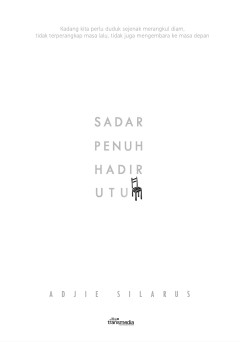
E-Book Sadar Penuh Hadir Utuh
Semua inspirasi berupa kalimat dalam buku 'Sadar Penuh Hadir Utuh' ini saya dapatkan secara gratis dari alam semesta. Untuk itu, silakan bagi siapa pun yang ingin mengutip sebagian atau seluruh inspirasi di buku ini. Bahkan, bila ada yang sudah membeli dan merasa sudah selesai membaca buku ini, tolong pinjamkan buku ini kepada siapa pun yang ingin membaca tapi belum membeli. Saya akan ikut be…
- Edisi
- Cet. 1
- ISBN/ISSN
- 6021036123
- Deskripsi Fisik
- xxiv, 270 hlm; 1,8 MB
- Judul Seri
- -
- No. Panggil
- 158.128 ADJ s

E-book A Dark Trace : Sigmund Freud on the Sense of Guilt
“Psychoanalysis has never claimed to provide a complete theory of human mentality in general.”1 Freud wrote these words in 1914, shortly after his break with Jung. It is indeed true that he never concerned himself with developing an all-embracing system, but rather moved from the analysis of patients to areas of special attention: repression, dreams,…
- Edisi
- -
- ISBN/ISSN
- 9789461664174
- Deskripsi Fisik
- 333 hlm
- Judul Seri
- -
- No. Panggil
- 150.195 WES a
E-book Speaking with the Dead : An Ethnography of Extrahuman Experience
Within any spiritual or religious tradition, nothing could seem more obvious than the reality of the unseen world. Gods demand attention. Spirits compel action. In a famous essay on religion’s cultural foundations, Clifford Geertz (1973, 118) wryly observed that when he asked a Balinese man who had gone into trance and performed as the goddess Rangda if the…
- Edisi
- -
- ISBN/ISSN
- 9781685711733
- Deskripsi Fisik
- 191 hlm
- Judul Seri
- -
- No. Panggil
- 133.9 TOM s
E-book Coping : A Philosophical Guide
You have probably heard Reinhold Niebuhr’s serenity prayer in some version or other: ‘God, grant me the serenity to accept the things I cannot change, the courage to change the things I can, and the wisdom to know the difference.’ It’s clever and touching, but there is a bit of a false dichotomy. There is often very little we can do to make changes to the world, …
- Edisi
- -
- ISBN/ISSN
- 9781800642805
- Deskripsi Fisik
- 175 hlm
- Judul Seri
- -
- No. Panggil
- 170 BOV c
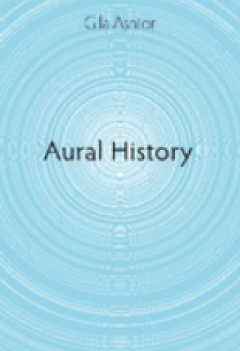
E-book Aural History
Aural History is an anti-memoir memoir of encountering devastating grief that uses experimental storytelling to recreate the winding, fractured path of loss and transformation.Written by a thirty-something psychotherapist and queer theorist, Aural History is structured as a sequence of three sections that each use different narrative styles to represent a distinctive stage in the protagonist’…
- Edisi
- -
- ISBN/ISSN
- 9781950192687
- Deskripsi Fisik
- 325 hlm
- Judul Seri
- -
- No. Panggil
- 150.195 ASH a
E-book Plotinus on Beauty : Beauty as Illuminated Unity in Multiplicity
Theredoesnotseemtobeanyseriousreasontosupposeasignificantevo-lution in Plotinus’ philosophy. Even leaving aside the problematic nature ofdevelopmentaltheoriesfromahermeneuticalperspective,thereexistssomepositiveevidenceforconsistencyinPlotinus’thought.InhisLifeof Plotinus,Porphyrygivesatleastfourreasonsforadoptingaunitaryperspective.Thefirsttwoargumentsareratherindirect:First,Plotinusbegant…
- Edisi
- -
- ISBN/ISSN
- 9789004510203
- Deskripsi Fisik
- 220 hlm
- Judul Seri
- -
- No. Panggil
- 184 GAL p
E-book The Things That Really Matter : Philosophical conversations on the cor…
There are many reasons why I liked Mary so much, as a person, a writer and a philosopher. I liked her for her wit, her warmth, her level- headedness and her moral clarity; her ability to steer clear of all unnecessary technicalities and cut straight to the chase, focusing on the big picture rather than getting mired in the details of any particu…
- Edisi
- -
- ISBN/ISSN
- 9781800082175
- Deskripsi Fisik
- 307 hlm
- Judul Seri
- -
- No. Panggil
- 170 HAU t

E-book Kant on Love
What did Immanuel Kant really think about love? This book is the first in-depth study of the concept of love in Kant`s philosophy. It argues that love is much more important to Kant than previously thought, and that understanding love is actually essential for Kantian ethical life. Perhaps surprisingly, for Kant, love permeates human existence from the strongest impulses of nature to the highes…
- Edisi
- -
- ISBN/ISSN
- 9783110544978
- Deskripsi Fisik
- 199 hlm
- Judul Seri
- -
- No. Panggil
- 170 RIN k

E-book Brain Computations and Connectivity
The subject of this book is how the brain works. In order to understand this, it is essential toknowwhatis computed by different brain systems; andhowthe computations are performed.The aim of this book is to elucidate what is computed in different brain systems; and todescribe current computational approaches and models of how each of these brain systemscomputes. Understanding the brain in this…
- Edisi
- -
- ISBN/ISSN
- 9780198887911
- Deskripsi Fisik
- 1174 hlm
- Judul Seri
- -
- No. Panggil
- 152 ROL b
E-book The Secret to Teen Power
The truth is, THE SECRET helps bring riches to the poor, abundance to the hungry, peace to the war-torn, wellness to the unhealthy. But it can also help make dreams come true for you. Maybe you don’t think you deserve it. But you do. And if you can dream it, you have the power to make it happen. Seriously. Now, it might seem obvious, but the hardest part about living your dream is knowing jus…
- Edisi
- -
- ISBN/ISSN
- 9781847386939
- Deskripsi Fisik
- 169 hlm
- Judul Seri
- -
- No. Panggil
- 155.5 HAR t

E-book The Insectile and the Deconstruction of the Non/Human
The scene of fasciation in the novel, as such, spreads beyond its most compelling and tragic evocation, illustrating Wildeve’s orientation towards Eustacia and vice versa. The subsection titled ‘Fascination’ begins with the ‘system’ of Clym’s face and figure, moving through a series of encounters and settings in which the phenomenon takes hold or e…
- Edisi
- -
- ISBN/ISSN
- 9781032345505
- Deskripsi Fisik
- 209 hlm
- Judul Seri
- -
- No. Panggil
- 190 COL t
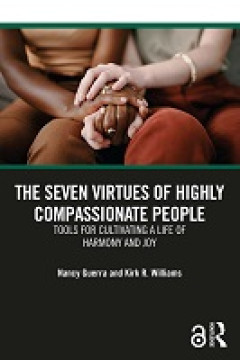
E-book The Seven Virtues of Highly Compassionate People: Tools for Cultivatin…
What are the practical implications of truly caring about yourself and others, of approaching each day with an open mind, an open heart, and a desire to reduce the suffering of all living beings? Can we learn compassion as a way of life, as an antidote to violence and cruelty? In The Seven Virtues of Highly Compassionate People, social scientists Nancy Guerra and Kirk R. Williams provide easy-t…
- Edisi
- -
- ISBN/ISSN
- 9781032480107
- Deskripsi Fisik
- 195 halaman
- Judul Seri
- -
- No. Panggil
- 150.1 GUE t
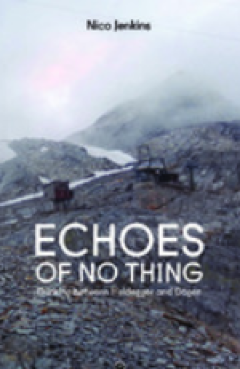
E-book Echoes of No Thing: Thinking between Heidegger and Dogen
ohn Cage’s 4'33" remains an echo, a repetition of the space of silence and all silence entails. Performed for the first time by pianist David Tudor in 1954 during a piano recital in Wood-stock, New York, it asks of the performer to sit at the piano, and to “perform” a piece of music. Tudor interpreted the instruc-tions Cage had written and sat at t…
- Edisi
- -
- ISBN/ISSN
- 9781950192014
- Deskripsi Fisik
- 212 hlm
- Judul Seri
- -
- No. Panggil
- 181.1 JEN e
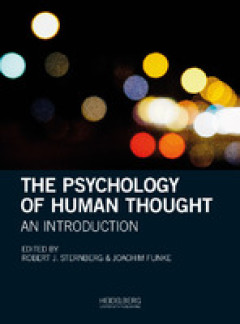
E-book The Psychology of Human Thought: An Introduction
The “Psychology of Human Thought” is an “open access” collection of peer-reviewed chapters from all areas of higher cognitive processes. The book is intended to be used as a textbook in courses on higher process, complex cognition, human thought, and related courses. Chapters include concept acquisition, knowledge representation, inductive and deductive reasoning, problem solving, metac…
- Edisi
- -
- ISBN/ISSN
- 9783947732340
- Deskripsi Fisik
- 418 halaman, ilus.
- Judul Seri
- -
- No. Panggil
- 150.1 STE t
E-book Pray for Brother Alexander
When a victor asks you to pray for him, it means that he of-fers you his victory. “Can you do anything with this victory?” he seems to say. It is true, not anyone can triumph over his own vic-tory and feel as deep as brother Alexander that he has nothing to do with it. At his own level, however, a common man offers various victories on the market, victories that he cannot alway…
- Edisi
- -
- ISBN/ISSN
- 9781947447530
- Deskripsi Fisik
- 152 hlm
- Judul Seri
- edieval Western Philosoph
- No. Panggil
- 189 NOI p

E-book Controversy over the Existence of the World
Our next task is to carry out formal-ontological analyses on the one hand, and material-ontological1 ones on the other, that are connected to our main problem. We begin with the basic conviction that an entity of arbitrary form and material deter-mination cannot exist in an altogether arbitrary manner, but rather that necessary interconnections yet to be discovered obtain between an existent’…
- Edisi
- Vol. 2
- ISBN/ISSN
- 9783653025040
- Deskripsi Fisik
- 776 hlm
- Judul Seri
- -
- No. Panggil
- 111 ING c
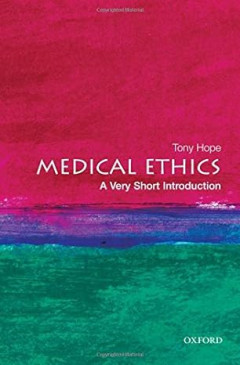
E-book Medical Ethics: A Very Short Introduction
Medical ethics is an area that has particular interest for the general public as well as for the medical practitioner, and issues concerning medical ethics seem to be constantly in the headlines. This short and accessible introduction provides an invaluable tool with which to think about the ethical values that lie at the heart of medicine. Tony Hope deals with thorny moral issues, including…
- Edisi
- -
- ISBN/ISSN
- 9780192802828
- Deskripsi Fisik
- 167 halaman
- Judul Seri
- -
- No. Panggil
- 174.2 HOP m
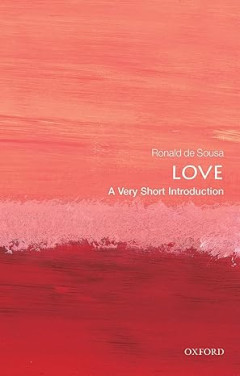
E-book Love: A Very Short Introduction
Although there are many kinds of love, erotic love has been celebrated in art and poetry as life's most rewarding and exalting experience, worth living and dying for and bringing out the best in ourselves. And yet it has excused, and even been thought to justify, the most reprehensible crimes. Why should this be? This Very Short Introduction explores this and other puzzling questions. Do we lov…
- Edisi
- -
- ISBN/ISSN
- 9780199663842
- Deskripsi Fisik
- 309 halaman
- Judul Seri
- -
- No. Panggil
- 128.46 SOU l
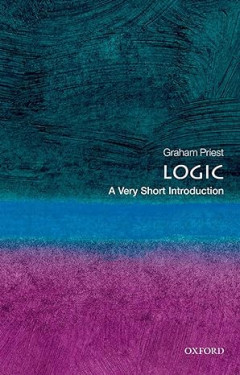
E-book Logic: A Very Short Introduction
Logic is often perceived as having little to do with the rest of philosophy, and even less to do with real life. In this lively and accessible introduction, Graham Priest shows how wrong this conception is. He explores the philosophical roots of the subject, explaining how modern formal logic deals with issues ranging from the existence of God and the reality of time to paradoxes of probability…
- Edisi
- -
- ISBN/ISSN
- 9780195682625
- Deskripsi Fisik
- 146 halaman.
- Judul Seri
- -
- No. Panggil
- 160.0 PRI l
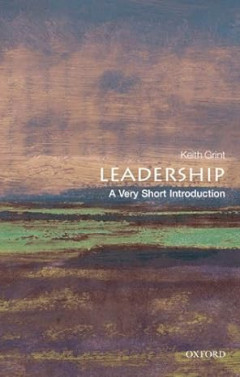
E-book Leadership: A Very Short Introduction
The subject of leadership raises many questions: What is it? How does it differ from management and command? Are leaders born or bred? Who are the leaders? Do we actually need leaders? Inevitably, the answers are provocative and partial; leadership is a hugely important topic of debate. There are constant calls for 'greater' or 'stronger' leadership, but what this actually means, how we can …
- Edisi
- -
- ISBN/ISSN
- 9780199569915
- Deskripsi Fisik
- 307 halaman
- Judul Seri
- -
- No. Panggil
- 158.4 KEI l
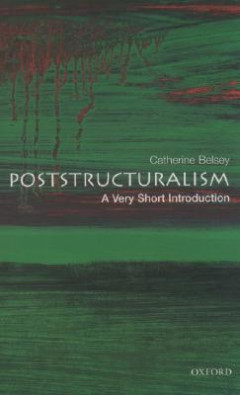
E-book Poststructuralism: A Very Short Introduction
Poststructuralism changes the way we understand the relations between human beings, their culture, and the world. Following a brief account of the historical relationship between structuralism and poststructuralism, this Very Short Introduction traces the key arguments that have led poststructuralists to challenge traditional theories of language and culture. While the author discusses such we…
- Edisi
- -
- ISBN/ISSN
- 0192801805
- Deskripsi Fisik
- 105 halaman, ilus.
- Judul Seri
- -
- No. Panggil
- 100 BEL p 002849-eB-0122
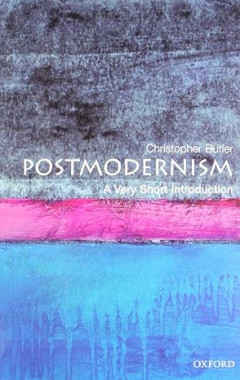
E-book Postmodernism: A Very Short Introduction
Postmodernism has become the buzzword of contemporary society over the last decade. But how can it be defined? In this highly readable introduction the mysteries of this most elusive of concepts are unraveled, casting a critical light upon the way we live now, from the politicizing of museum culture to the cult of the politically correct. The key postmodernist ideas are explored and challenged,…
- Edisi
- -
- ISBN/ISSN
- 0192802399
- Deskripsi Fisik
- 152 halaman
- Judul Seri
- -
- No. Panggil
- 149.97 BUT p 002835-eB-0122
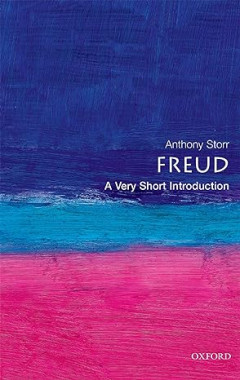
E-book Freud: A Very Short Introduction
Sigmund Freud, the founder of psychoanalysis, developed a totally new way of looking at human nature. Only now, with the hindsight of the half-century since his death, can we assess his true legacy to current thought. As an experienced psychiatrist himself, Anthony Storr offers a lucid and objective look at Freud's major theories, evaluating whether they have stood the test of time, and in the …
- Edisi
- -
- ISBN/ISSN
- 0192854550
- Deskripsi Fisik
- 177 halaman
- Judul Seri
- -
- No. Panggil
- 150.1 STO f 002831-eB-0122
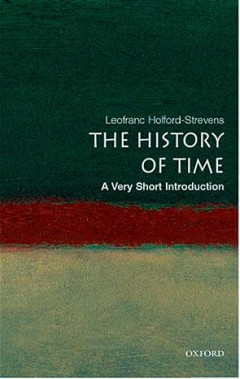
E-book The History of Time: A Very Short Introduction
Why do we measure time in the way that we do? Why is a week seven days long? At what point did minutes and seconds come into being? Why are some calendars lunar and some solar? The organization of time into hours, days, months, and years seems immutable and universal, but is actually far more artificial than most people realize. For example, the French Revolution resulted in a restructuring of…
- Edisi
- -
- ISBN/ISSN
- 0192804995
- Deskripsi Fisik
- 161 halaman
- Judul Seri
- -
- No. Panggil
- 115 HOL t 002826-eB-0122
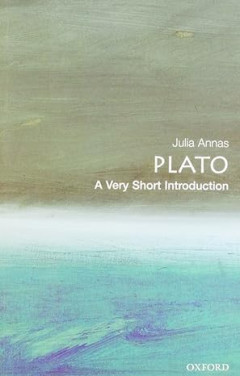
E-book Plato: A Very Short Introduction
This lively and accessible book focuses on the philosophy and argument of Plato's writings, drawing the reader into Plato's way of doing philosophy and the general themes of his thinking. It discusses Plato's style of writing: his use of the dialogue form, his use of what we today call fiction, and his philosophical transformation of myths. It also looks at his discussions of love and philosoph…
- Edisi
- -
- ISBN/ISSN
- 019280216X
- Deskripsi Fisik
- 110 halaman
- Judul Seri
- -
- No. Panggil
- 184 ANN p 002824-eB-0122
E-book Buddhist Ethics: A Very Short Introduction
With over 520 million followers, Buddhism is now the world's fourth largest religion. Over the last seventy years or so there has been a growing interest in Buddhism, and it continues to capture the imagination of many in the West, who see it as either an alternative or a supplement to their own religious beliefs. For complex cultural and historical reasons, ethics has not received as much a…
- Edisi
- -
- ISBN/ISSN
- 019280457X
- Deskripsi Fisik
- 167 halaman
- Judul Seri
- -
- No. Panggil
- 181.043 KEO b
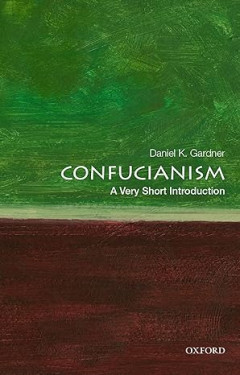
E-book Confucianism: A Very Short Introduction
To understand China, it is essential to understand Confucianism. First formulated in the sixth century BCE, the teachings of Confucius would come to dominate Chinese society, politics, economics, and ethics. In this Very Short Introduction, Daniel K. Gardner explores the major philosophical ideas of the Confucian tradition, showing their profound impact on state ideology and imperial government…
- Edisi
- -
- ISBN/ISSN
- 9780195398915
- Deskripsi Fisik
- 153 halaman
- Judul Seri
- -
- No. Panggil
- 181.112 GAR c
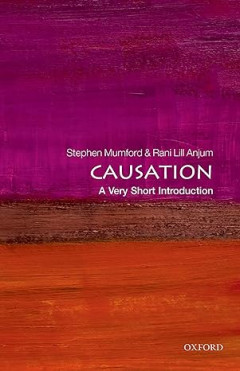
E-book Causation: A Very Short Introduction
Causation is the most fundamental connection in the universe. Without it, there would be no science or technology. There would be no moral responsibility either, as none of our thoughts would be connected with our actions and none of our actions with any consequences. Nor would we have a system of law because blame resides only in someone having caused injury or damage. Any intervention we m…
- Edisi
- -
- ISBN/ISSN
- 9780199684434
- Deskripsi Fisik
- 259 halaman
- Judul Seri
- -
- No. Panggil
- 122 MUM c
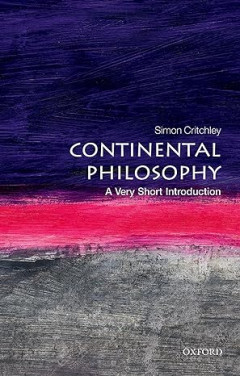
E-book Continental Philosophy: A Very Short Introduction
In this enlightening new Very Short Introduction, Simon Critchley shows us that Continental philosophy encompasses a distinct set of philosophical traditions and practices, with a compelling range of problems all too often ignored by the analytic tradition. He discusses the ideas and approaches of philosophers such as Kant, Hegel, Nietzsche, Husserl, Heidegger, Sartre, Habermas, Foucault, and D…
- Edisi
- -
- ISBN/ISSN
- 9780192853592
- Deskripsi Fisik
- 164 halaman
- Judul Seri
- -
- No. Panggil
- 190.0 CRI c
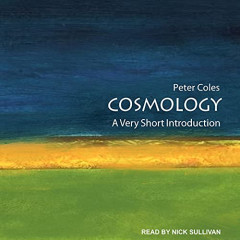
E-book Cosmology: A Very Short Introduction
Written in simple and accessible language, this nontechnical introduction to cosmology, or the creation and development of the universe, explains the discipline, covers its history, details the latest developments, and explains what is known, what is believed, and what is purely speculative. In addition, the author discusses the development of the Big Bang theory, and more speculative modern is…
- Edisi
- -
- ISBN/ISSN
- B095J99XTN
- Deskripsi Fisik
- 143 halaman
- Judul Seri
- -
- No. Panggil
- 113 COL c
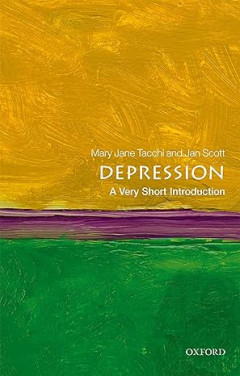
E-book Depression: A Very Short Introduction
What is depression? What is bipolar disorder? How are they diagnosed and how are they treated? Can a small child be diagnosed with depression and treated with antidepressants - and should they be? Covering depression, manic depression, and bipolar disorder, this Very Short Introduction gives a brief account of the history of these concepts, before focussing on the descriptions and understand…
- Edisi
- -
- ISBN/ISSN
- 9780199558650
- Deskripsi Fisik
- 286 halaman
- Judul Seri
- -
- No. Panggil
- 155.9042 TAC d
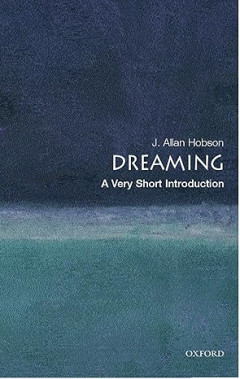
E-book Dreaming: A Very Short Introduction
What is dreaming, and what causes it? Why are dreams so strange and why are they so hard to remember? Replacing dream mystique with modern dream science, J. Allan Hobson provides a new and increasingly complete picture of how dreaming is created by the brain. Focusing on dreaming to explain the mechanisms of sleep, this book explores how the new science of dreaming is affecting theories in psyc…
- Edisi
- -
- ISBN/ISSN
- 9780192802156
- Deskripsi Fisik
- 169 halaman
- Judul Seri
- -
- No. Panggil
- 135 HOB d
E-book Emotion: A Very Short Introduction
Was love invented by European poets in the Middle Ages or is it part of human nature? Will winning the lottery really make you happy? Is it possible to build robots that have feelings? In this Very Short Introduction Dylan Evans explores these and many other intriguing questions in this guide to the latest thinking about the emotions. Drawing on a wide range of scientific research, from anth…
- Edisi
- -
- ISBN/ISSN
- 0192804618
- Deskripsi Fisik
- 161 halaman
- Judul Seri
- -
- No. Panggil
- 152.4 EVA e
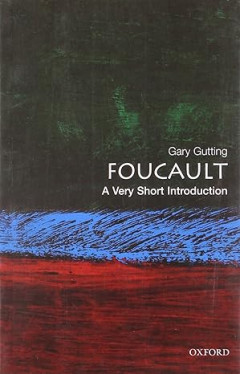
E-book Foucault: A Very Short Introduction
From aesthetics to the penal system, and from madness and civilization to avant-garde literature, Foucault was happy to reject old models of thinking and replace them with fresh versions that are still being debated today. A major influence on Queer Theory and gender studies (he was openly gay and died of an AIDS-related illness in 1984), he also wrote on architecture, history, law, medicine, l…
- Edisi
- -
- ISBN/ISSN
- 0192805576
- Deskripsi Fisik
- 141 halaman
- Judul Seri
- -
- No. Panggil
- 194.0 GUT f
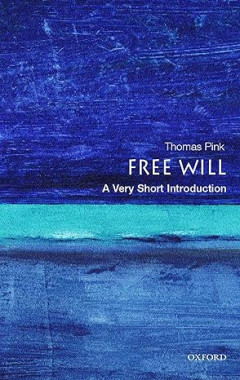
E-book Free Will: A Very Short Introduction
Every day we seem to make and act upon all kinds of choices: some trivial, others so consequential that they change the course of one's life, or even the course of history. But are these choices really free, or are we compelled to act the way we do by factors beyond our control? Is the feeling that we could have made different decisions just an illusion? And if our choices are not free, is it l…
- Edisi
- -
- ISBN/ISSN
- 9780192853585
- Deskripsi Fisik
- 143 halaman
- Judul Seri
- -
- No. Panggil
- 101 PIN f

E-book Genius: A Very Short Introduction
Homer, Leonardo da Vinci, Mozart, Shakespeare, and Tolstoy; Curie, Darwin, Einstein, Galileo, and Newton. What do these world-famous artists and scientists have in common?- apart from the fact that their achievements predate our own time by a century or more. Most of us would probably answer: all ten possessed something we call genius, which in each instance permanently changed the way that hum…
- Edisi
- -
- ISBN/ISSN
- 9780199594405
- Deskripsi Fisik
- 285 halaman
- Judul Seri
- -
- No. Panggil
- 101 ROB g
 Karya Umum
Karya Umum  Filsafat
Filsafat  Agama
Agama  Ilmu-ilmu Sosial
Ilmu-ilmu Sosial  Bahasa
Bahasa  Ilmu-ilmu Murni
Ilmu-ilmu Murni  Ilmu-ilmu Terapan
Ilmu-ilmu Terapan  Kesenian, Hiburan, dan Olahraga
Kesenian, Hiburan, dan Olahraga  Kesusastraan
Kesusastraan  Geografi dan Sejarah
Geografi dan Sejarah